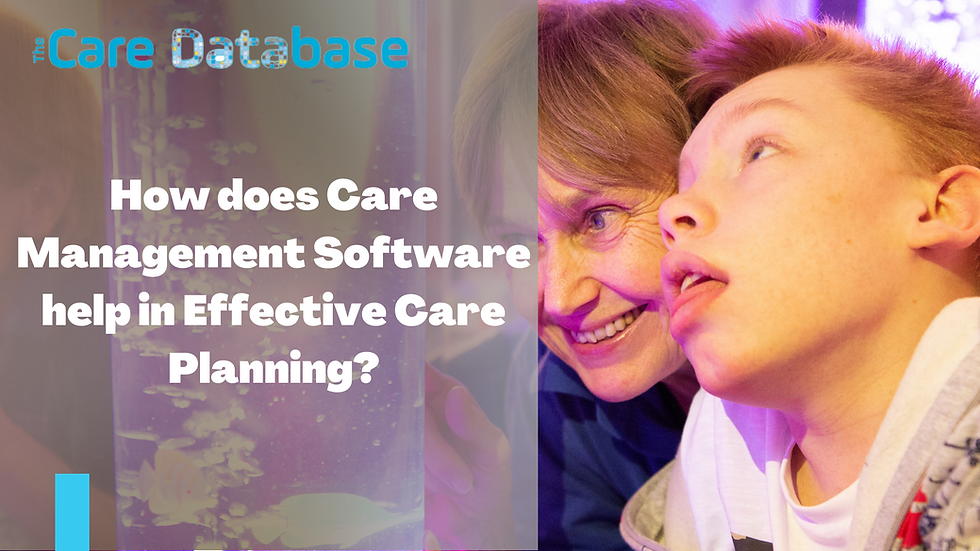How does Care Management Software help in Effective Care Planning?
- Jasmine Aneja

- Feb 10, 2022
- 2 min read
Updated: Oct 12, 2022

Outlining the clinical care requirements for a patient is essential. Regardless of the care worker on duty, the information flow must be consistent. Support provided to patients must be recorded at every stage. With the medical complexities and approvals involved, care planning has many challenges.
Critical Issues in Paper-Based Care Planning:
Outdated Paper-Based Plan
Care planning needs systematic record-keeping. The information must be consistent and error-proof. Paper-based plans are becoming obsolete, requiring a lot of effort to manage and maintain the information. Moreover, there is a chance of a knowledge transfer gap when carers change shifts.
Audit Trail Deficiencies
Care planning needs systematic record-keeping. The information must be consistent and error-proof. Paper-based plans are becoming obsolete, requiring a lot of effort to manage and maintain the information. Moreover, there is a chance of a knowledge transfer gap when carers change shifts.
Information Processing is time-consuming
Locating physical information is always cumbersome. When there is a shortage of medical staff and carers, this gets even worse. Storing information in multiple locations leads to wasted time and effort, imposes barriers for care workers and hampers patient care.
Here are the benefits care management software can offer:
Improved Patient Care
Managing data in one place saves administrative efforts. This drives efficiencies, giving care workers more time to invest in inpatient care. Care workers can access and process medical information faster with all the care plans on one screen. This helps facilitate effective care planning to best address the patient's needs.
Easy and fast Information Tracking
A single software solution that stores all your care plans will allow the care team to read and edit those care plans efficiently and safely. Getting approvals from a patient's family and medical consultants becomes effortless. Device-friendly software provides community carers with the flexibility to work from anywhere at any time.
Electronic Data Trail
Robust care management systems help to prevent data loss and ensure data integrity. Permission-based roles allow users access to create and edit care plans, making this an error-free process. Electronic record-keeping is an evident measure of exemplary patient care which helps your organisation meet the standards for CQC compliance.
To conclude, robust software with disaster recovery management makes care planning more manageable, faster and safer.
If you are considering switching to care management software, check out The Care Database now and take advantage of paperless care plans for your team.




Comments